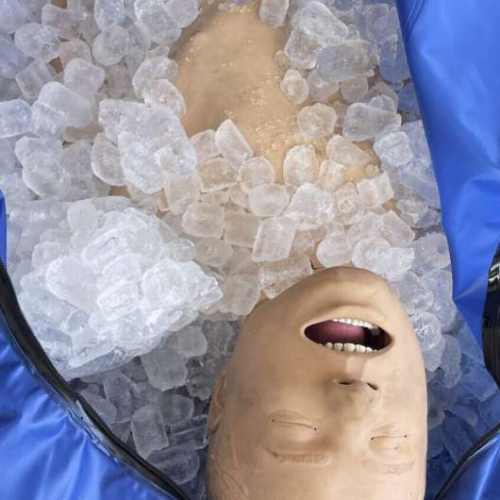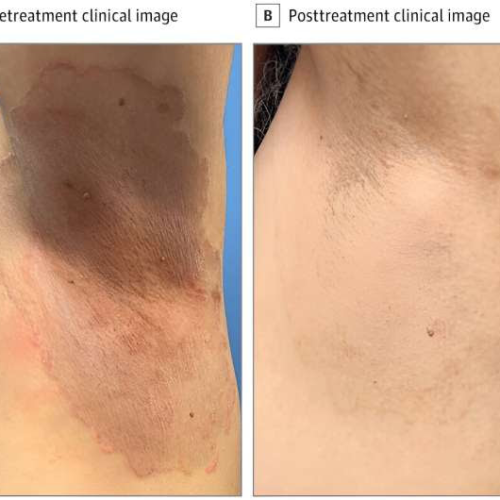JUNE 5, 2024 by Lancet Credit: Pixabay/CC0 Public DomainFor someone stopping taking antidepressants, the risk of experiencing one or more discontinuation symptoms (also called withdrawal symptoms), such as dizziness, headache, nausea, insomnia and irritability due directly to stopping the medication is 15% (equivalent to one in six to seven people), according to a systematic review...
Category: <span>Clinical Practice</span>
‘Don’t Screen’ for Vitamin D: New Endo Society Guideline
Medscape Medical News > Conference News > ENDO 2024 Miriam E. Tucker June 03, 2024 BOSTON — New Endocrine Society guidelines call for limiting vitamin D supplementation beyond the daily recommended intake to specific risk groups and advises against routine 25-hydroxyvitamin D [25(OH)D] testing in healthy individuals. The evidence-based document was presented on June 3,...
Phoenix using ice immersion to treat heat stroke victims as Southwest bakes in triple digits
JUNE 5, 2024 by Anita Snow Phoenix Fire Capt. John Prato demonstrates a new protocol that the fire department in America’s hottest big city is adopting as the West braces for the first heat wave of the summer season, Monday, June 3, 2024, in Phoenix. The cold water immersion therapy already used by hospitals in...
Experts alert doctors and the public to the arrival of hard-to-treat fungal skin infections in the US
JUNE 5, 2024 by NYU Langone Health Trichophyton indotineae causing tinea corporis. Credit: JAMA Dermatology (2024). DOI: 10.1001/jamadermatol.2024.1126Health care providers should watch out for new and highly contagious forms of ringworm or jock itch, which are emerging as a potential public health threat, according to a pair of reports. In the first of the studies,...
Adding Life to Your Patients’ Years
Medscape Family MedicineCOMMENTARY Cate Collings, MD DISCLOSURES | April 22, 2024 Caring for older adults was one of the most rewarding parts of my years practicing as a clinical cardiologist. I appreciated their wisdom, humor, and, very often, their respect and appreciation for physicians. It was always upsetting to see them suffer a mild fall...
Developing Drugs for Neurodegenerative Diseases
By Matthew AdamsReviewed by Danielle Ellis, B.Sc.Understanding neurodegenerative diseasesCurrent treatment landscapeEmerging therapeutic strategiesRole of technology and AIChallenges in drug developmentEthical and regulatory considerationsFuture directionsConclusionReferencesFurther reading Neurodegenerative diseases such as Alzheimer’s and Parkinson’s disease significantly impact the health of many people worldwide. Due to this impact, researchers around the globe are collaborating to develop targeted treatments....
Why Are We Undertreating So Many Pulmonary Embolisms?
LONG BEACH, California — A small fraction of patients with pulmonary embolism (PE) who are eligible for advanced therapies are actually getting them, reported investigators who conducted a big data analysis. “Advanced PE therapy seems to be vulnerable to disparate use, and perhaps underuse,” Sahil Parikh, MD, a cardiovascular interventionalist at the Columbia University Medical...
What Are Platanus Cough and Thunderstorm Asthma? – diagnostic
Because of climate change, heat waves, storms, heavy rainfalls, and floods are now occurring in areas that seldom experienced these phenomena before. “Extreme weather events are rare, but in terms of their extent, duration, and scale, they are unusual. And they are increasing due to climate change,” said Andrea Elmer, MD, an internal medicine and...
Tezepelumab in Adults and Adolescents With Severe, Uncontrolled Asthma
Nathan L. Boyer, MD – Uniformed Services University of the Health Sciences DISCLOSURES March 04, 2022 The U.S. Food and Drug Administration (FDA) has approved the first-in-class biologic tezepelumab-ekko as an add-on maintenance treatment to standard therapy for severe asthma in adults and children aged 12 years and older. The approval is based on results...
New Era? ‘Double Selective’ Antibiotic Spares the Microbiome
A new antibiotic uses a never-before-seen mechanism to deliver a direct hit on tough-to-treat infections while leaving beneficial microbes alone. The strategy could lead to a new class of antibiotics that attack dangerous bacteria in a powerful new way, overcoming current drug resistance while sparing the gut microbiome. “The biggest takeaway is the double-selective component,”...




